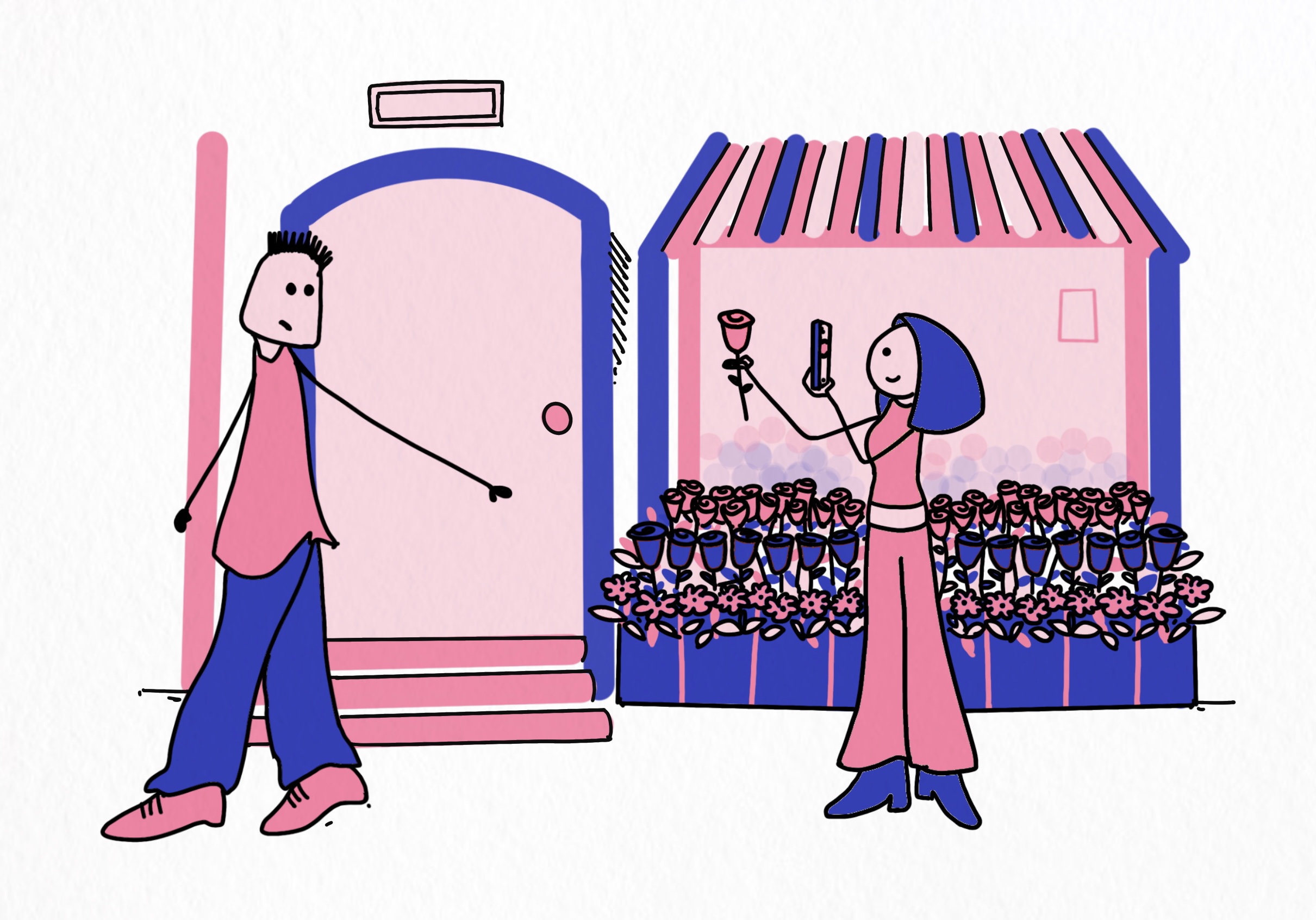Prior to Valentine’s Day’s formalization, an ancient Roman festival known as “Lupercalia” was celebrated every February 15 — its origins remain unknown. Although a fertility rite, Lupercalia was meant to purify Rome and ward off evil spirits with bloody, violent, and sexually-charged rituals, strange sacrifices, and even the pairing of women to men “by lottery.”
The legends that follow Lupercalia — said to be the origins of Valentine’s Day — are what intrigue me though. According to Encyclopaedia Britannica, “at the end of the 5th century, Pope Gelasius I replaced Lupercalia with St. Valentine’s Day. It came to be celebrated as a day of romance from about the 14th century.”
But which Christian martyr named Saint Valentine was this a tribute to?
One legend cites a priest who, prior to his execution, wrote a love letter to his jailer’s daughter and signed it with, “from your Valentine.” Another legend tells the story of a Saint who married couples that loved each other, in secrecy, to save the husband’s from going to war — an act of defiance against the Roman emperor. Is it possible they are the same person? The former being a consequence of the latter? Either way, both legends bear their roots in ideas associated with genuinity and love.
Fast forward 16 centuries, and few people know how the day originated. Few know who St. Valentine was, but most people definitely know how much money they want spent on them. Can we blame a lack of knowledge for its origins or commercialization for the shift in meaning in the day of love? Or is it something else entirely?
From a pagan festival, to legends of a martyr, Valentine’s Day has a history and purpose so rich that February 14 should be anything but what it is today: a superficial competition.
Somewhere down the road, the wholesome representation of adoration and romance (depicted by the Roman god of love, Cupid) turned into a freight train of social media posts flooding with who received more material items than the next.
The holiday is a billion-dollar industry turbo charged by the comparison trap.
According to a survey conducted by an American finance website, WalletHub: “Roughly 34 per cent of people expect their Valentine to spend at least $50 on a gift, and 47 per cent of people would also break up with their significant other if he or she spent irresponsibly.”
“Four in five Canadians in a relationship dismiss the holiday as a ‘commercial enterprise,’ three-quarters of them will celebrate it anyway.”
That 34 per cent is further reflected in a Canadian poll by Insights West, reported by Global News in 2018, whose findings included, “one-third of respondents say the holiday was a chance to see if their spouse or partner cares about them.”
The poll further found that, although “62 per cent of Canadians describe the day as ‘a waste of time and money,’” and “four in five Canadians in a relationship dismiss the holiday as a ‘commercial enterprise,’ three-quarters of them will celebrate it anyway.”
Valentine and Gelasius must be turning in their graves right about now.
But February 14 doesn’t have to be a waste of time nor a money-grubbing excuse of a day. You don’t need to place a dollar value on your love for someone.
A handwritten letter, a personalized gift, a candlelit dinner of your partner’s culinary favourites can all go a long way. If you’re on a budget, plan an experience to share together, or an at-home activity. It all shows more effort and thought than simply swiping your credit card for something completely ostentatious.
It’s also good to remember that there shouldn’t be a consumerist deadline or due date on when to show your affections for someone just because Facebook’s ads tell you there is. Unless your birthday or anniversary falls on Valentine’s Day, what about the other 364 days filled with milestones and occasions that your partner adorned you with gifts and surprises?
I’m not saying to be scarce, but be genuine and appreciative. Cupid also symbolized the invincibility of love, and I sincerely doubt the best way to depict that invincibility is with something as fluid as money. How much you spend (or don’t spend) shouldn’t be your primary goal or concern.
Essentially, it’s a balance on both people’s parts — remembering to acknowledge the day for what it was originally intended (a day of romance and appreciation) without getting caught up on how many figures your partner spent on you so that you can post about it.
This is especially important now considering how many lives that the current pandemic has taken, but also how COVID-19 claimed many relationships and marriages too. With the divorce rate already being an alarming and approximate 50 per cent before the pandemic, the dissolution of love should open the eyes of those who are still lucky enough to have it.


